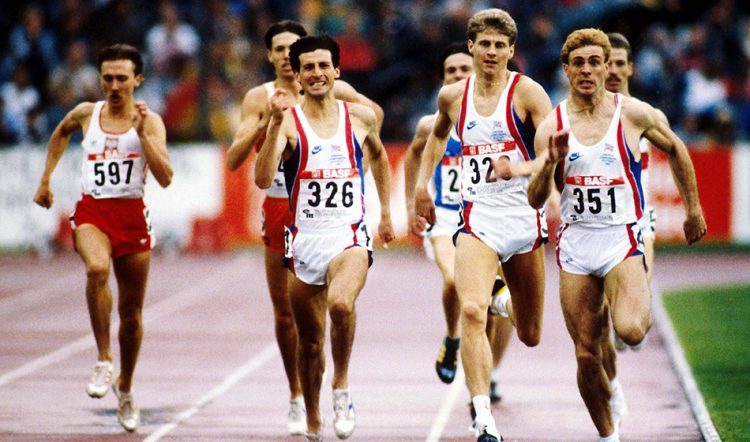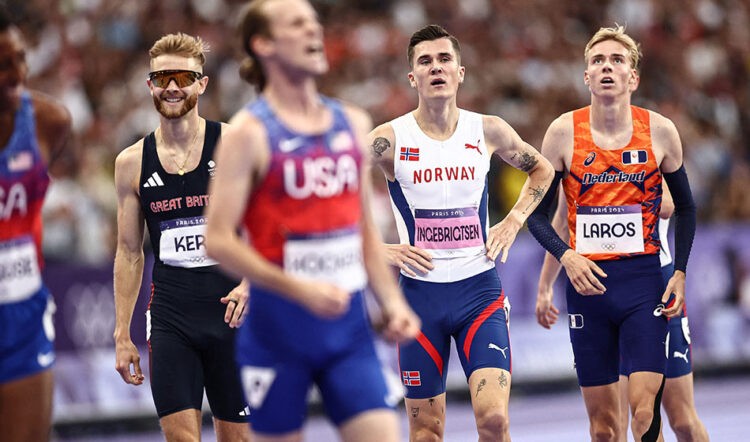After losing a fourth global champs on the trot in the metric mile, the Norwegian faces ‘stick or twist’ dilemma
In the movie Edge of Tomorrow, Tom Cruise find himself in a Groundhog Day time-loop where he’s trying to bring down an alien invasion. Every time he dies, he wakes up and starts the day again, getting a little closer to his goal with each attempt.
Jakob Ingebrigtsen must feel a bit like this in global championship 1500m races. After winning Olympic gold in 2021, he’s been out-kicked by Samuel Tefera to the 2022 world indoor title in Belgrade, Jake Wightman to 2022 world outdoor gold in Eugene, Josh Kerr at the 2023 world outdoors in Budapest and now Cole Hocker in the Paris Olympics. To add insult to injury, he didn’t win a medal in the latter either.
In comparison, over 5000m he’s won the last two world titles and this year’s Olympic crown with relative ease. Given this, some suggest he should cut his losses with the 1500m and focus on longer events.
The topic even came up in Ingebrigtsen’s press conference after his 5000m win in Paris. Sitting alongside him, Grant Fisher, the 5000m and 10,000m bronze medallist in Paris, described the 1500m as the “marquee event” of the Games and that abandoning it would be an “overreaction”.
There are plenty of examples of great athletes throughout history persisting with an event before finally tasting success. Seb Coe lost major championships at 800m in 1978, 1980, 1982 and 1984 before out-kicking Steve Cram and Tom McKean in the “Spitfires out of the sun” European final of 1986.

Coe, McKean and Cram in 1986 (Mark Shearman)
So the question isn’t so much whether Ingebrigtsen should stick with 1500m but what tactics should he use? Leading at close to world record pace (400m in 54.8 and 800m in 1:51.5) didn’t work for him in Paris. So what are the options?
Run even faster
Hicham El Guerrouj’s world record pace from 1998 saw the Moroccan clock 54.3 for 400m and 1:50.7 for 800m en route to his 3:26.00. If Ingebrigtsen gets himself in such shape next year, he could potentially run the legs off his rivals. Two problems, though. His rivals are increasingly able to handle such paces. El Guerrouj had a pacemaker too.
Start fast and get faster
Nick Willis, the two-time Olympic 1500m medallist from New Zealand, suggested recently that if Ingebrigtsen led at a brisk pace during the early stages, his rivals would have to waste energy behind jostling for position and running wide. The…
CLICK HERE to Read the Full Original Article at AW…

